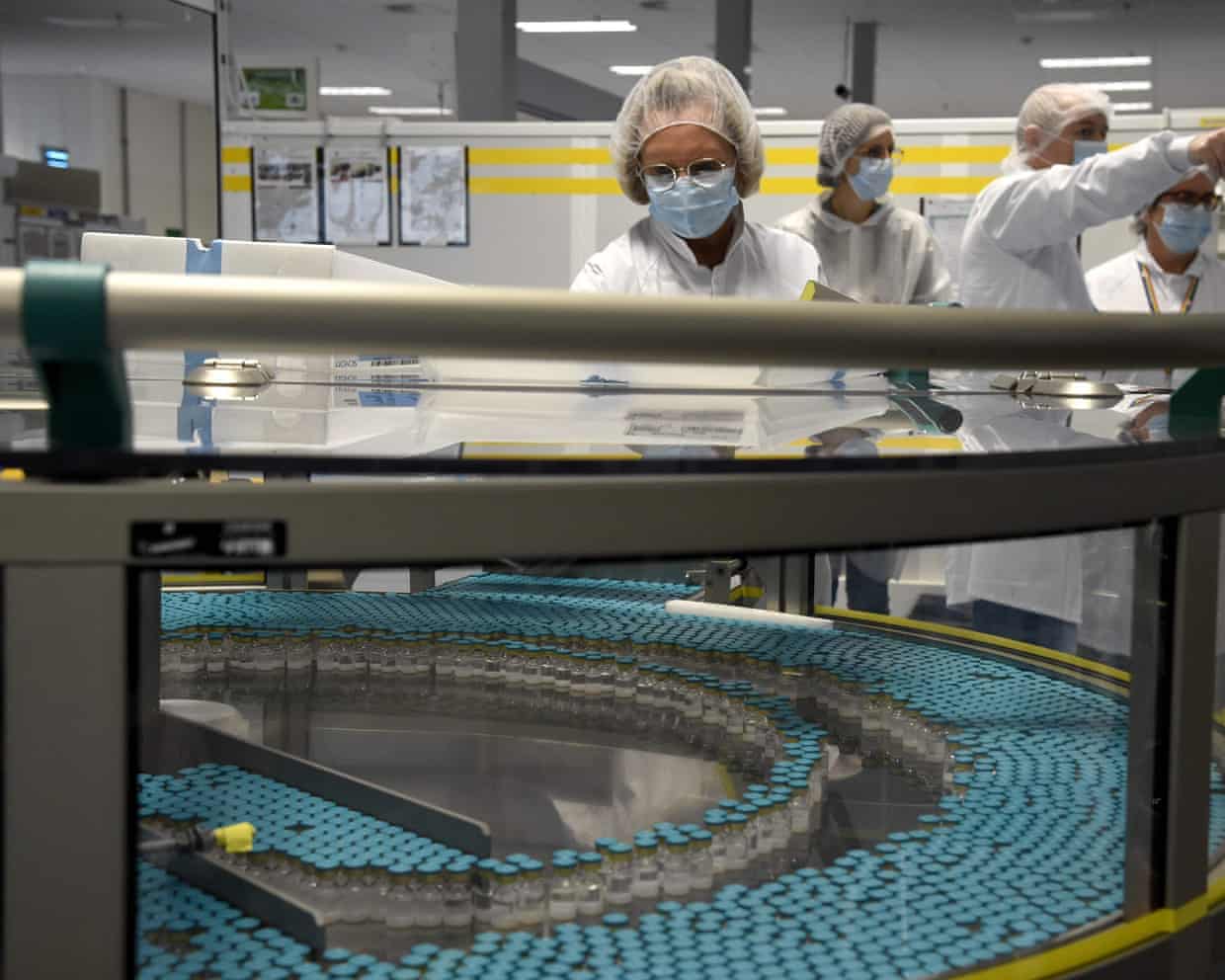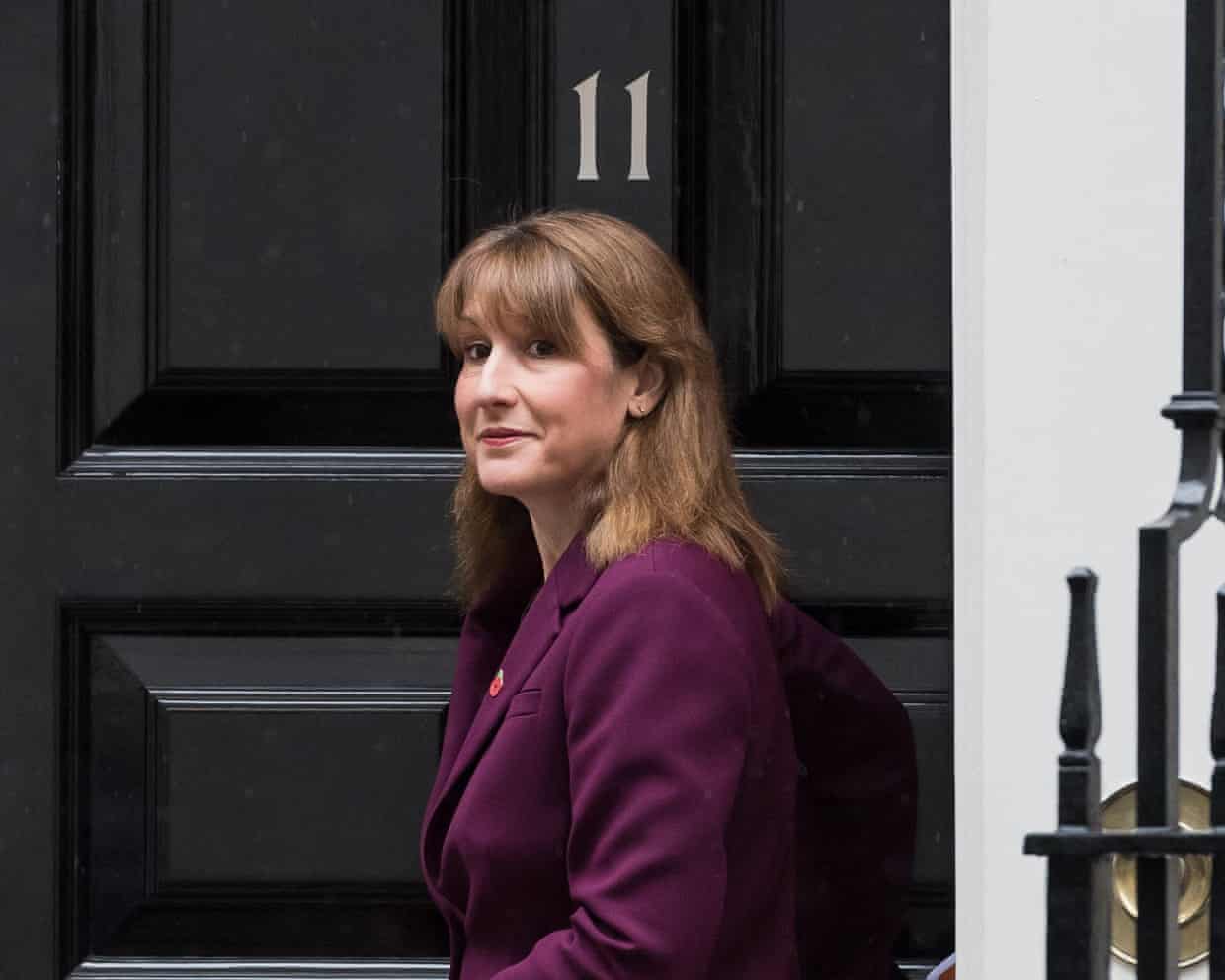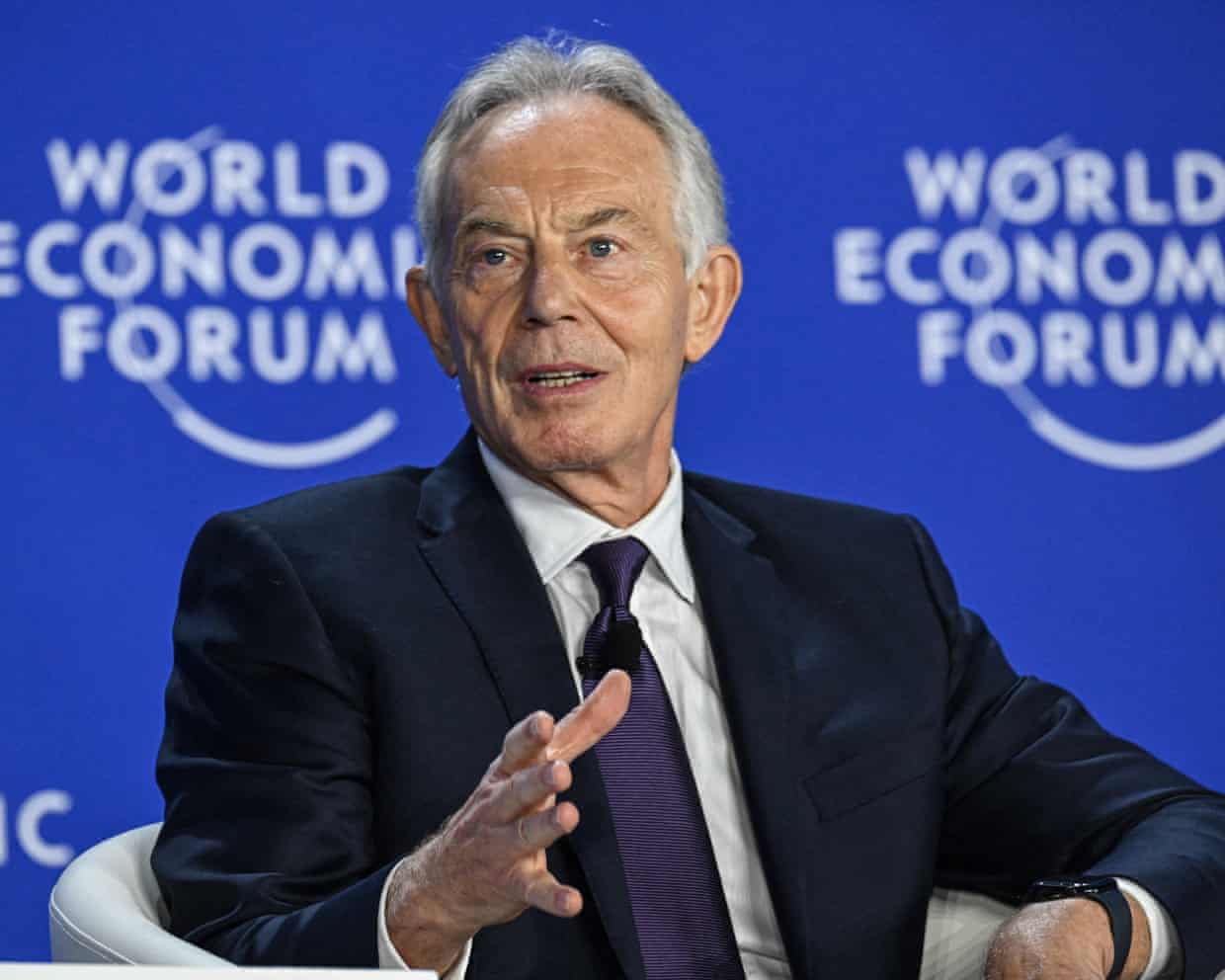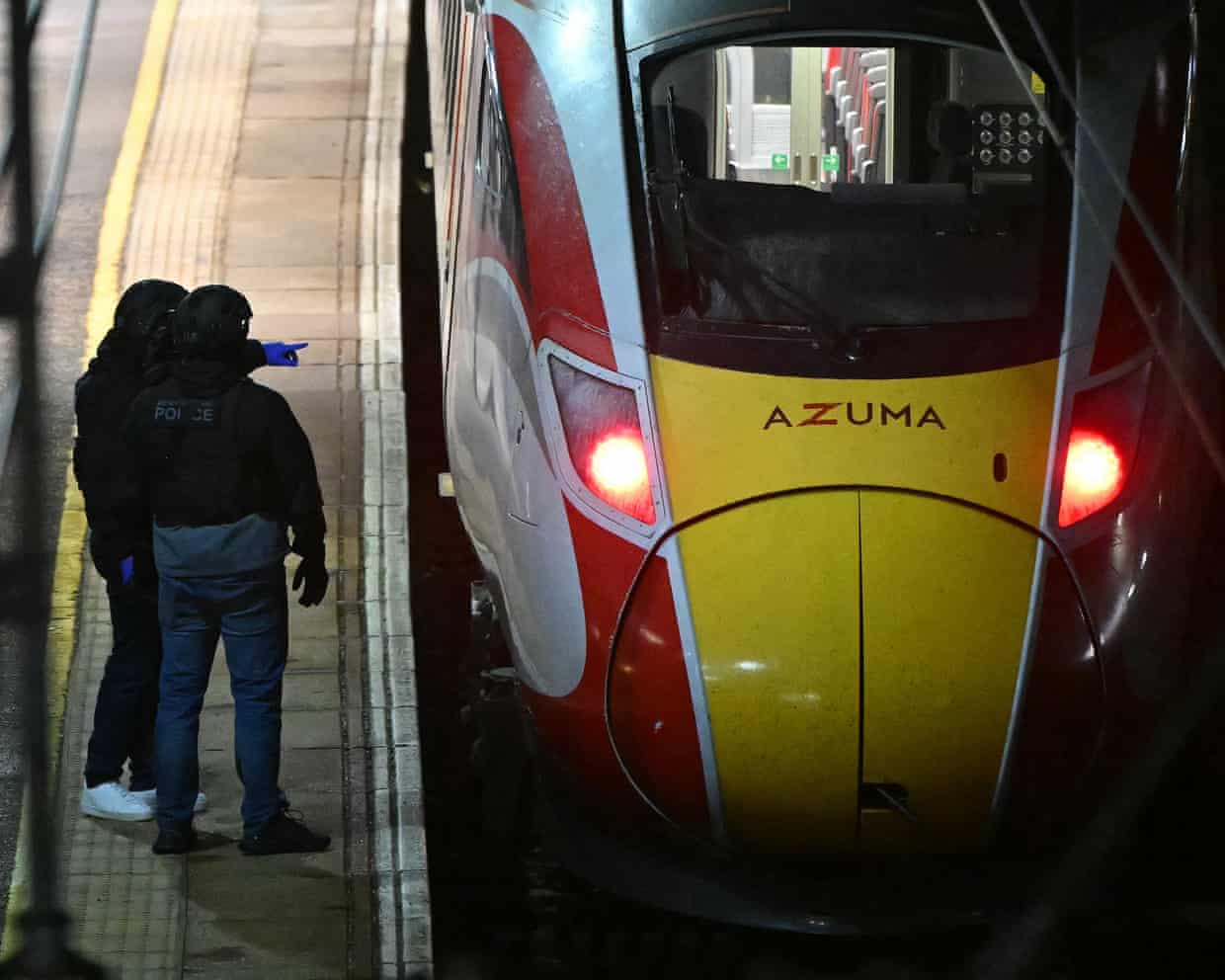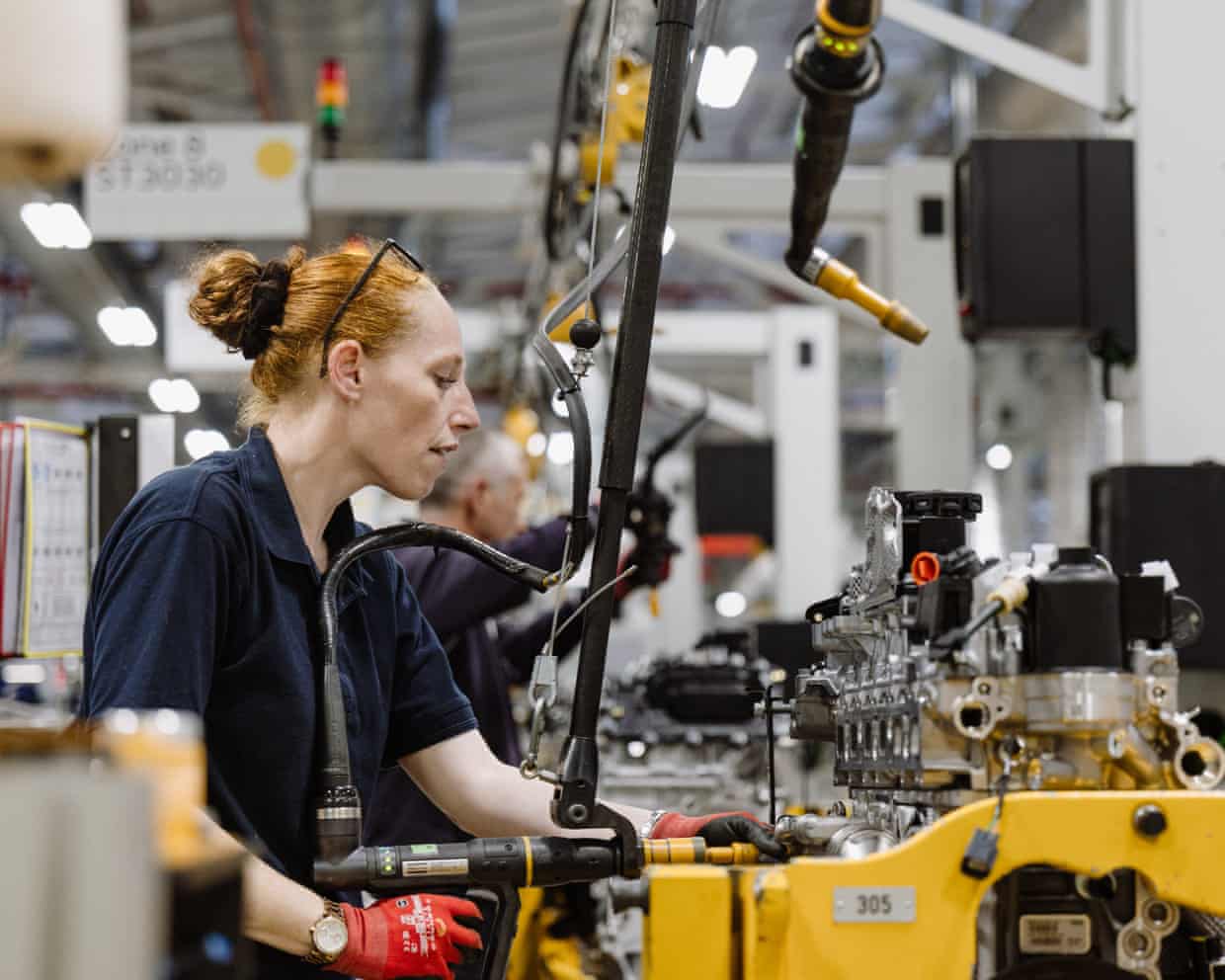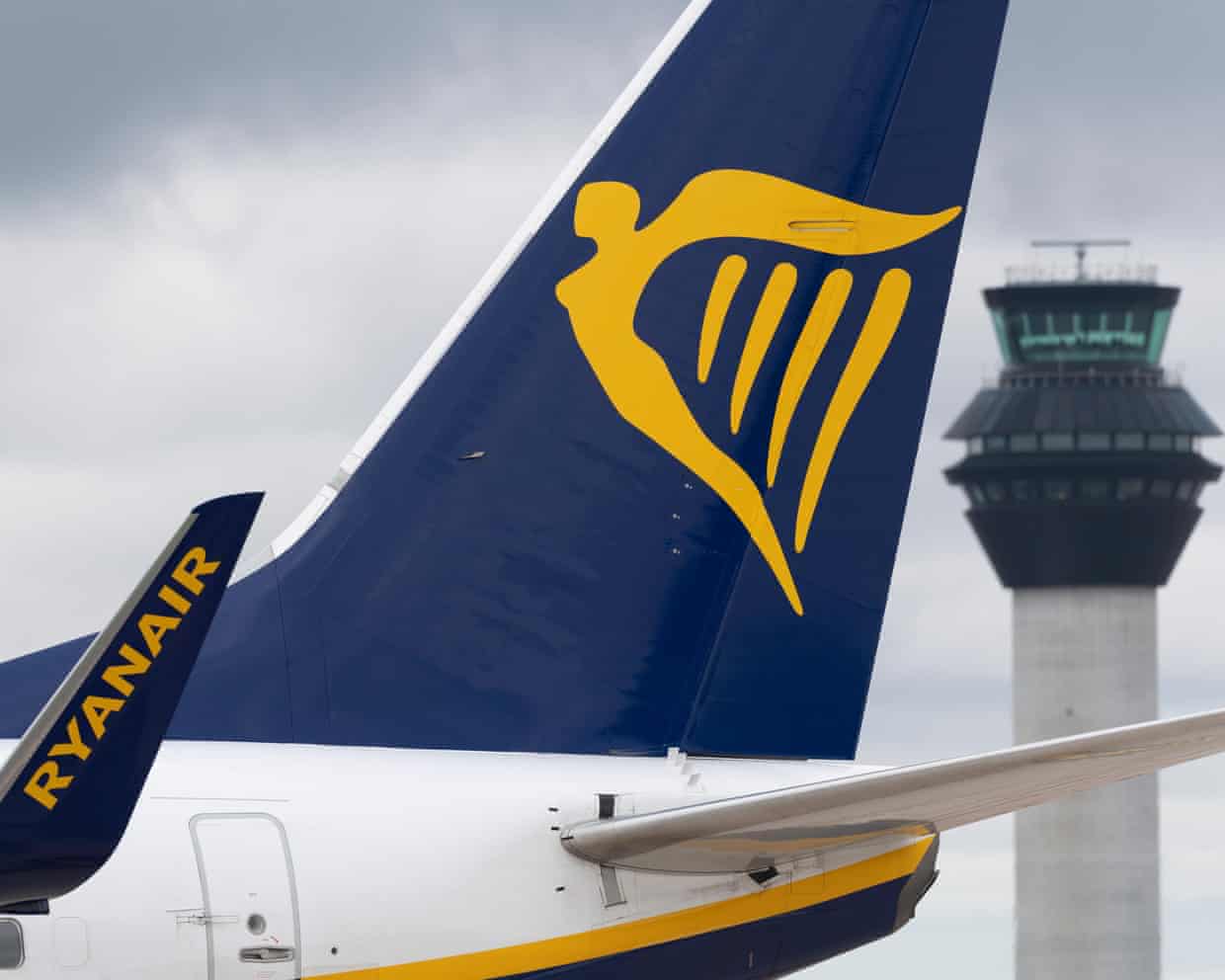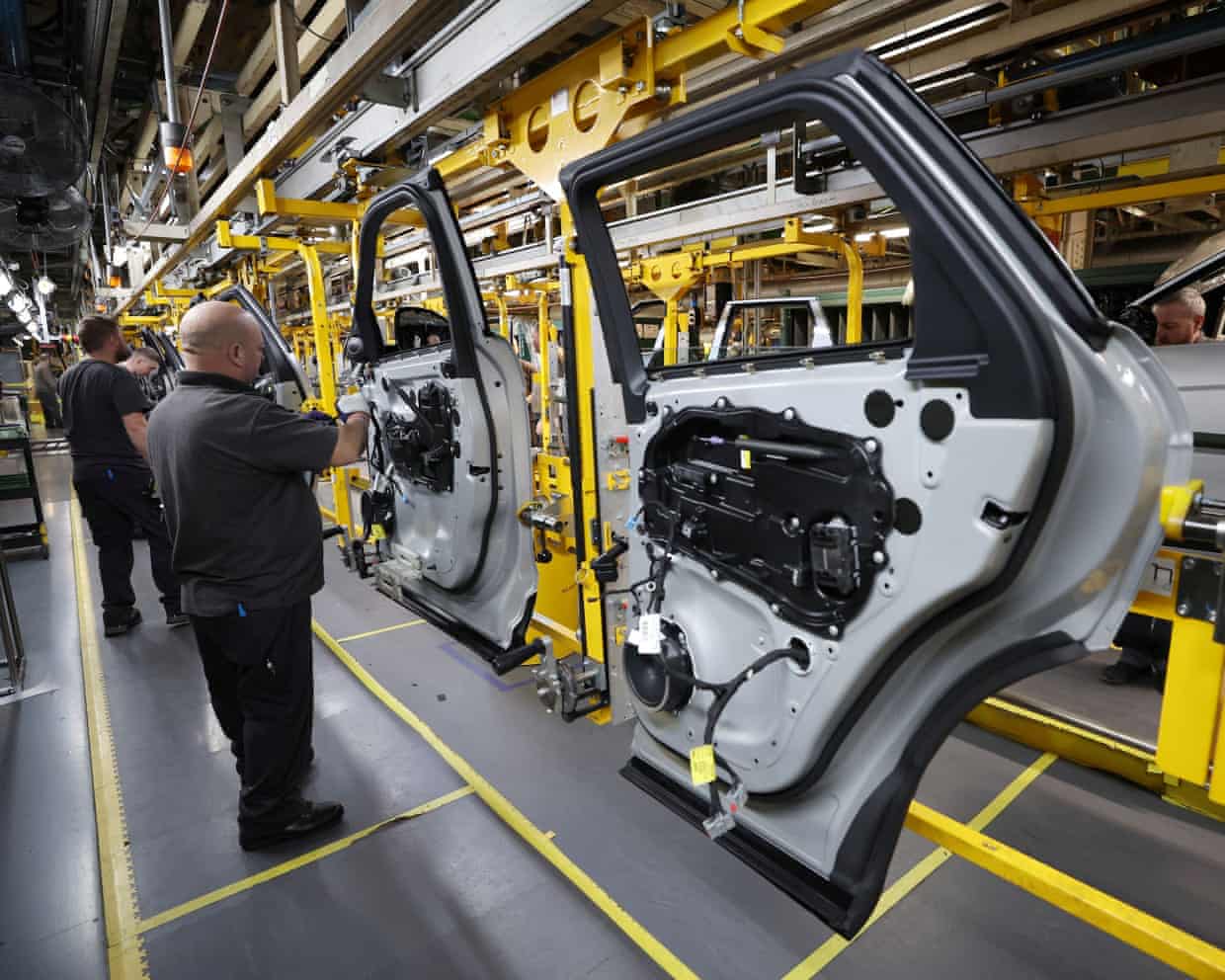UK factories return to growth after JLR restarts operations; US manufacturing exports hit by tariffs – as it happened
UK manufacturing output has expanded for the first time in a year, helped by the restart of production at Jaguar Land Rover following its recent cyberhack.The latest poll of purchasing managers at UK factories, just released by S&P Global, shows that manufacturing output rose for the first time in a year in October.S&P Global reports that production volumes rose in the consumer and intermediate goods industries, partly due to a boost from the staged restarting of production at JLR last month.This helped to lift the wider UK Manufacturing Purchasing Managers’ Index to a 12-month high of 49.7 in October, up from 46.
2 in September, showing a smaller drop in overall activity.Rob Dobson, director at S&P Global Market Intelligence, explains:“The October PMI survey shows UK manufacturing production rising for the first time in a year, which is a positive in itself.However, there are real concerns that the bounce could prove short-lived.Not only did October see auto sector supply chains benefit from the production restart at JLR, which will provide only a temporary spike in production, but sluggish demand from both domestic and overseas markets meant October’s output growth was dependent on firms eating into backlogs of orders placed in prior months and allowing unsold stock to accumulate.JLR began a phased restart of operations in early October, after a crippling cyber-attack forced a month-long shutdown, which pushed UK car production down to a 73-year low.
Dobson adds that budget worries are weighing on factory bosses:“There are also concerns the forthcoming Budget will exacerbate the lingering challenges created by last year’s Budget, especially in relation the impact of NMW and employer NICs on costs, demand and production,This means that business optimism remains below its long-run average despite rising to an eight-month high in October,Manufacturers seem to be stuck in a holding pattern until the domestic policy and geopolitical backdrops exhibit greater clarity,Time for a recap…UK factories staged a recovery in October after the reopening of Jaguar Land Rover operations and a pick-up in consumer spending, according to a closely watched survey of the manufacturing sector,The S&P Global purchasing managers’ index (PMI) rose to a one-year high as business optimism improved and factory output expanded.
Jaguar Land Rover, Britain’s biggest carmaker, supported the recovery after it began reopening facilities hit by a cyber-attack that some experts estimated cost the UK economy about £1.9bn.US factories, meanwhile, reported that tariffs weighed on their exports, and also led to another steep rise in input prices.Stocks of finished goods also jumped, suggesting weakening demand.The world’s biggest oil producers have agreed to pause their planned oil production hikes in the first months of next year to assuage fears that the global market may become oversupplied with crude.
The Opec+ group agreed yesterday to nudge the cartel’s exports up by 137,000 barrels a day in December, before halting any further rises in January, February and March.The oil price rose in response, but has since dipped back, with Brent crude now down 0.3% at $64.59 per barrel.In deals news….
Consumer goods maker Kimberly-Clark has agreed to buy Tylenol owner Kenvue for $48,7bn,OpenAI has signed a seven-year, $38bn deal to buy cloud services from Amazon,com,US tariffs have hit sales abroad last month, and pushed up costs, a new survey shows.
The latest poll of purchasing managers across the US manufacturing industry has found that new exports fell last month, indicating that tariffs hurt international trade.Tariffs also continued to underpin a steep level of cost inflation in the manufacturing economy, data provider S&P Global reports.More broadly, the report shows that output and new orders rose at a stronger rate last month, as the US manufacturing economy improved.But, Chris Williamson, chief business economist at S&P Global Market Intelligence, warns that the underlying picture is “not so healthy”, adding:“Most worrying is the unprecedented rise in unsold stock reported in October, widely linked to weaker than anticipated sales to customers, especially in export markets, which could trigger a downshifting of production in the coming months unless demand revives.Companies have also become less optimistic about the year ahead, with sentiment back down close to the gloomy levels seen around the April tariff announcements.
US trade policy uncertainties are again a big factor in dampening business spirits, with tariff policies being increasingly blamed both on rising export losses and import supply chain disruptions.These export and import worries are being exacerbated by more domestically focused political concerns, including the federal shutdown, which are manifesting themselves most prominently in consumer-focused industries.Business confidence among producers of consumer goods is now down to its lowest for two years as firms growing increasingly worried about household spending in the US and falling sales to consumers in export markets.”Amazon’s stock is jumping (+5%) after OpenAI signed a $38bn deal to access its Amazon Web Services.The deal will give OpenAI access to more computing power, allowing it to run products such as ChatGPT on AWS infrastructure.
Until now, OpenAI has been more closely tied with Microsoft (one of its investors), and its Azure cloud systems.Wall Street has begun the new week with fresh gains among technology stocks.The Nasdaq index has risen by 164 points, or 0.69%, to 23,889 in early trading.Pet healthcare firm IDEXX (+14%) is top dog after reporting strong financial results, with Amazon (+4.
9%), Nvidia (+2.7%) and Tesla (+2.3%) also among the top risers.This adds to strong gains already this year, as Tom Stevenson, investment director at Fidelity International, reports:“With October closing out at the end of last week, US stocks have now hit their longest monthly winning streak in four years.The S&P 500 added 2.
4% in October, enough to register a sixth consecutive month of gains.It has hit an all-time high on 36 occasions so far this year.“The tech-heavy Nasdaq did even better.It rose 4.8% in October to notch up a seventh straight monthly improvement.
That is its longest run since 2018.“It has been a remarkable year for equity investors because outside the US, returns have been even higher, between 20% and the mid 30% range for Europe, Japan, and emerging markets.Only gold has done better.”China’s foreign minister has held phone talks with his German counterpart, Beijing’s ministry of foreign affairs has said.The call, with German foreign minister Johann Wadephul, covered security, economic policy and other topics of mutual interest, a foreign ministry spokesperson said in Berlin on Monday.
The ministers agreed that a trip by Wadephul to China that was recently cancelled should be rescheduled soon, the spokesperson said, adding that the Chinese side also reiterated its invitation to German Chancellor Friedrich Merz.The talks come amid increasing concern in Germany that car manufacturer are being held to ransom by China which is restricting exports of chips and rare earths including magnets needed to open car windows and books.The issue of Taiwan independence was raised by the Chinese foreign minister Wang Yi who said he hoped the Germany would oppose the country’s independence.China’s foreign ministry said:“China unconditionally supported German reunification and hopes that Germany, having experienced the pain of division, can fully understand and support China in safeguarding its national sovereignty and territorial integrity and opposing all acts of ‘Taiwan independence’”.Soybean prices have hit a 15-month high today, on hopes that China will resume buying supplies from the US.
Chicago soybeans rose to their highest since July 2024, after the US and China reached a deal to de-escalate their trade war,Reuters reports that the Chicago Board of Trade most-active soybean contract rose 0,5% to $11,21-1/4 a bushel this morning,Wheat and corn prices also rose.
California company Vast Space has taken an important step towards launching the world’s first commercial space station.On Sunday, Vast deployed a satellite into orbit which will test a range of critical space station systems.The satellite, called Haven Demo, was launched on a SpaceX Falcon 9 rocket.It will provide important information on radiation tolerant computers, power systems, software, sensors, reaction control systems, propulsion, radios, ground stations, and command and control systems, Vast say.It will help Vast develop Haven-1, the world’s first commercial space station, which is scheduled to launch in 2026.
Announcing the deployment, Vast says:Haven Demo achieved mission success after deploying from SpaceX’s Bandwagon-4 flight on Nov 2, 2025.Following nominal separation and stable sun-pointing, the spacecraft captured 4K video of its solar array deployment and is power-positive.Vast was founded by billionaire entrepreneur Jed McCaleb, who developed the Ripple cryptocurrency protocol.Haven demo successfully deploying solar array.Very proud of this team! @vast pic.
twitter,com/ORq9hQE5fBSpeaking to the Guardian back in January, Vast’s CEO Max Haot said the company believes that, eventually, more people will be living in space than on Earth (although we probably won’t live to see this),Haot explained:We have a long term vision that we want to be the leading builder and operator of a space station,In our long term roadmap, which was set by our founder in 2021, we want to be the first company that create an artificial gravity space station, leveraging the new SpaceX rocket – Starship - and build a 105 metre long stick in space by seven metres in diameter,And if we rotate it at four rotation per minute, we will have 1g gravity, on either end, so the same as the Earth and zero G in the center.
That gravity provision would protect astronauts from the physical damage of living in an exclusively zero-gravity environment for months.EU member states have until Friday to report back on the impact of the chip supply crisis caused by a Chinese ban on exports by Nexperia following the controversial takeover of its Netherlands factory by the Dutch government last month.The move comes as the EU failed to strike a breakthrough during talks between the bloc’s tech commissioner Henna Virkkunen and Nexperia’s interim boss in the Netherlands on Friday.They were meeting as part of urgent efforts to prevent German, French, Italian, Spanish and Swedish car companies running out of supplies following stark warnings last week they had just “days” left before they would have to halt production.Separately senior EU officials met with their Chinese counterparts in Brussels on Friday to ease supplies of rare earths which are still strongly restricted by Beijing since export controls were imposed in April.
EU trade spokesperson Olof Gill said on Monday that “engagement” continued to try and “ensure a safe supply of chips” and a “swift and effective solution: on rare earths.EU ambassadors will be briefed on Wednesday on the outcome of meetings on Friday.A major acquisition has just been announced in the US consumer goods sector.Kimberly-Clark, the firm behind Kleenex and Andrex, has agreed to buy consumer health rival Kenvue in a $48.7bn deal.
The deal will, apparently, bring together “10 iconic billion-dollar brands, that will provide preferred solutions through every stage of life”.Mike Hsu, Kimberly-Clark chairman and chief executive officer, says:“We are excited to bring together two iconic companies to create a global health and wellness leader.“Kenvue is uniquely positioned at the intersection of CPG (consumer packaged goods) and healthcare, with exceptional talent and a differentiated brand offering serving attractive consumer health categories.With a shared commitment to developing science and technology to provide extraordinary care, we will serve billions of consumers across every stage of life.Kenvue’s brands include pain medication Tylenol, which Donald Trump’s administration has claimed pregnant women should avoid, claiming it was linke to a rise in autism among children.
Those claims were criticised as highly concerning and irresponsible by medical experts.Another multi-billion artificial intelligence deal has been announced.Microsoft has signed a $9.7bn deal to purchase AI cloud capacity from Australian company IREN, becoming the cloud computing company’s largest customer.The five-year agreement will give Microsoft access to high-powered data centres in Texas built using Nvidia’s GB300 chips, with the software giant agreeing to a 20% prepayment.
Sydney-based IREN also said it will commit $5.8bn of capital expenditure to purchase the requisite GPUs and related equipment – from Dell, according to Bloomberg.Exports of Irish goods to the US have fallen from around €14bn a month to just €4bn a month after firms including whiskey and pharma producers rushed to beat Donald Trump’s tariffs earlier this year, the country’s deputy prime minister has said.Simon Harris is meeting industry and agriculture chiefs on Monday as part of an ongoing dialogue aimed at mitigating the 15% tariff now imposed on imports to the US, hitting some of the country’s biggest brands including Kerrygold and Jameson Whiskey.The 15% tariff negotiated on exports by the EU with Trump this summer was “an mportant shield” for Irish exporters, he said, but economic data had yet to show the consequences.
Speaking ahead of the meeting, Harris said:“The data has shown, however, the defining feature of the Irish economic developments this year has been the substantial increase in exports to the US in advance of the anticipated introduction of tariffs.“Goods exports to the US averaged just €4 billion per month between June and August, compared to €14 billion per month in the first five months of the year.We will continue to monitor this in the months ahead.”The price of Nigeria’s government debt has fallen today, after US president Donald Trump threatened military action in the country if it did not take action to protect Christians.Longer-dated bonds fell the most, Reuters reports, with the 2051 issue falling roughly 0.
5 cents, to bid at just under 92 cents on the dollar, in contrast with flat trading for most emerging market bonds.Trump said on Saturday he had ordered the Pentagon to begin planning for potential military action in Nigeria as he stepped up his criticism that the government was failing to rein in the persecution of Christians in the west African country.The recovery in UK manufacturing remains “fragile”, despite the boost from the JLR restart, says Mike Thornton, head of industrials at consultancy RSM UK.“While the uptick in manufacturing activity in October shows a reverse on the downward trend seen in August and September, only time will tell if this is a temporary rebound in output rather than a sustained recovery.Following Jaguar Land Rover’s phased production restart in October, it’s likely that this has created a ripple effect throughout the supply chain, particularly as the shutdown impacted over 5,000 middle market businesses
